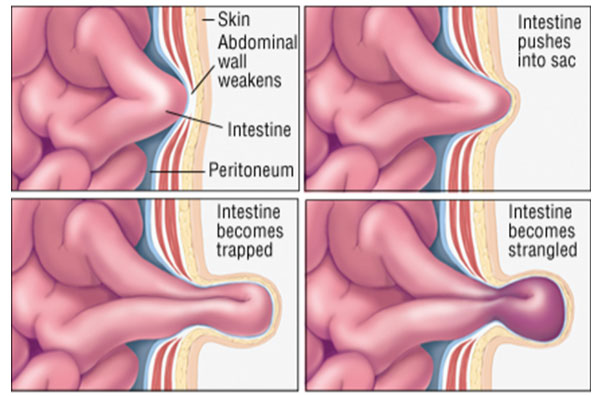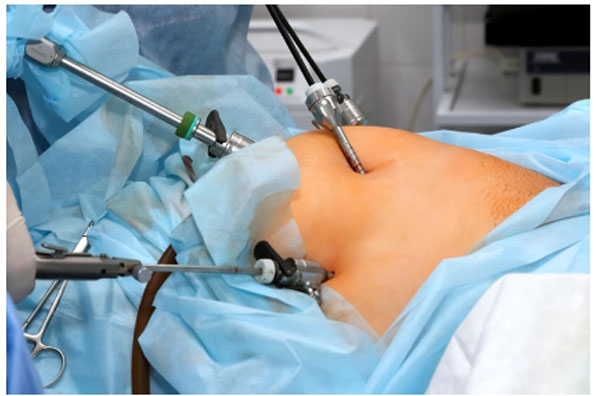DR KUMAR- BILLROTH HOSIPTAL
BEST UMBILICAL HERNIA SPECIALIST IN CHENNAI
Dr Kumar is recognised as one of the leadingUmbilical Hernia Specialists in Chennai, with over 29 years of experience in advanced Laparoscopic Umbilical Hernia Surgery and Minimally invasive surgery. He has successfully treated thousands of patients with Umbilical Hernia, including complex and recurrent Umbilical Hernias, ensuring safe, precise and long lasting results.He is a recipient of TIMES HEALTH EXCELLENCE AWARD for Service Excellence in Laparoscopic Hernia and Gastrointestinal Surgery.
At Billroth hospital, Dr Kumar integrates cutting- edge technology with his high surgical expertise to provide faster recovery, minimal pain and reduced hospital stay. His patient-first approach, combined with exceptional Laparoscopic skills, making him the preferred choice for individuals seeking
reliable and effective Umbilical Hernia Treatment in Chennai. He offers Robotic Surgery for selected patients.
Whether it’s a simple Umbilical Hernia or a Complex Umbilical Hernia, Dr Kumar’s proven track record, modern techniques and compassionate care ensure the Best outcomes for his patients.
WHAT IS UMBILICAL HERNIA?

An umbilical hernia occurs when the muscles around the navel (belly button)
weaken or open, causing abdominal tissue or organs to protrude. Although it is more frequently seen in new-borns and pregnant women, it can happen to both
adults and infants.
TYPES OF UMBILICAL HERNIA
INFANTILE UMBILICAL HERNIA: Usually developing soon after birth, infantile umbilical hernias are quite prevalent. They happen when a little bit of intestine or fluid protrudes from the abdominal muscles around the belly button, which fail in closing properly. By the time a child is one or two years old, these hernias usually go away on their own because the muscles gradually contract.
ADULT UMBILICAL HERNIA: An adult umbilical hernia is a condition that develops in adulthood and is more frequent in women,particularly those who have had many pregnancies, as well as in those who are overweight or have had stomach /Abdominal surgery.
PARAUMBILICAL HERNIA: Para umbilical hernia is a hernia in which abdominal contents protrude through a defect near the umbilicus, but not through the umbilical ring itself.
CAUSES OF UMBILICAL HERNIA
Weak abdominal muscles: Weak abdominal muscles are the main cause of umbilical hernias in adults. The following factors may be involved in muscular weakness:
Obesity: Having too much weight and increased strain on the abdomen can weaken the muscles there, which can result in the creation of hernias.
Pregnancy: Women who are pregnant, especially those who are pregnant more than once, are more likely to develop umbilical hernias because pregnancy can weaken and strain the abdominal muscles.
Respiratory disorders or persistent cough: Conditions like cystic fibrosis or chronic bronchitis that result in persistent coughing can weaken the abdominal muscles and increase the risk of hernia development.
Heavy lifting: Frequent heavy lifting without the right technique or abdominal support could lead to umbilical hernias.
SIGNS AND SYMPTOMS OF UMBILICAL HERNIA
* Bulge near the navel – more visible on coughing or straining.
* Pain or discomfort – mild ache, worsens with lifting or straining.
* Reducible – can usually be pushed back into the abdomen.
* Disappears when lying down
* Warning signs – severe pain, redness, vomiting (possible strangulation).
* Depending on their size, these hernias can be painful or uncomfortable,particularly while coughing, moving heavy things, or exerting oneself.
STAGES OF UMBILICAL HERNIA
- REDUCIBLE HERNIA
The hernia can be pushed back into the abdominal cavity either spontaneously or manually.
Usually painless, may cause a bulge that comes and goes. - IRREDUCIBLE (INCARCERATED) HERNIA
The hernia cannot be pushed back into the abdomen May cause discomfort, swelling, or heaviness
Blood flow is still usually adequate (no strangulation yet). - STRANGULATED HERNIA
The hernia cannot be reduced, and blood supply to the herniated tissue is compromised.
Symptoms: severe pain, redness, tenderness, vomiting, bowel obstruction signs.Surgical emergency, risk of tissue death - OBSTRUCTED HERNIA (SPECIFIC TO INTESTINAL HERNIAS)
Herniated intestine causes bowel obstruction without necessarily compromising blood flow.\

COMPLICATIONS OF UMBILICAL HERNIA
INCARCERATION: Pain or discomfort is caused when abdominal tissue becomes stuck and cannot be forced back into the abdominal cavity; immediate medical attention is necessary to stop more complications
STRANGULATION: A medical emergency that necessitates surgery to avoid tissue destruction, strangling can occur in extreme circumstances due to a compromised blood supply to herniated tissue.
GANGRENE AND INFECTIONS: Although extremely uncommon, infections can develop in a strangulated hernia, increasing the danger of gangrene. In these situations, an immediate medical attention is recommended.
TREATMENT OPTIONS FOR UMBILICAL HERNIA
Hernias do not go away on their own but provide a danger of consequences like Strangulation or Gangrene. For both adults and children with large or symptomatic umbilical hernias, surgery is the main treatment option.
OPEN UMBILICAL HERNIA SURGERY: Open umbilical hernia repair with mesh is a surgical procedure in which the hernia sac at the umbilicus is reduced, the defect in the abdominal wall is closed through an open incision, and a synthetic mesh is placed over or under the defect to reinforce the abdominal wall and prevent recurrence.
MINIMALLY INVASIVE SURGERY LAPAROSCOPIC : Compared to open surgery, laparoscopic or robotic-assisted methods for treating umbilical hernias in adults provide smaller incisions, quicker recovery times, and less discomfort following surgery.
ROBOTIC UMBILICAL HERNIA SURGERY: In this approach the umbilical hernia is operated with the help of a Robotic system giving more accuracy and faster recovery.drkunar is highly skilled in Robotic Umbilical Hernia surgery

FAQ’S
Do all Umbilical Hernia need Surgery?
Small Umbilical Hernia can be observed till they become symptomatic
Is an Umbilical Hernia dangerous?
Most are harmless, especially in Children and may close on their own by age 3- 4 .However in adults untreated Umbilical Hernias can enlarge and riskIncarceration or Strangulation which requires urgent medical attention.
When should you see a doctor?
If you have Persistent pain or swelling, Firm, tender or discoloured skin, if the Hernia increases in size.
Is Laparoscopic Surgery better for Umbilical Hernia?
Yes, Laparoscopic repair often provides: smaller scars, less pain, faster recovery, and Lower recurrence rate.
